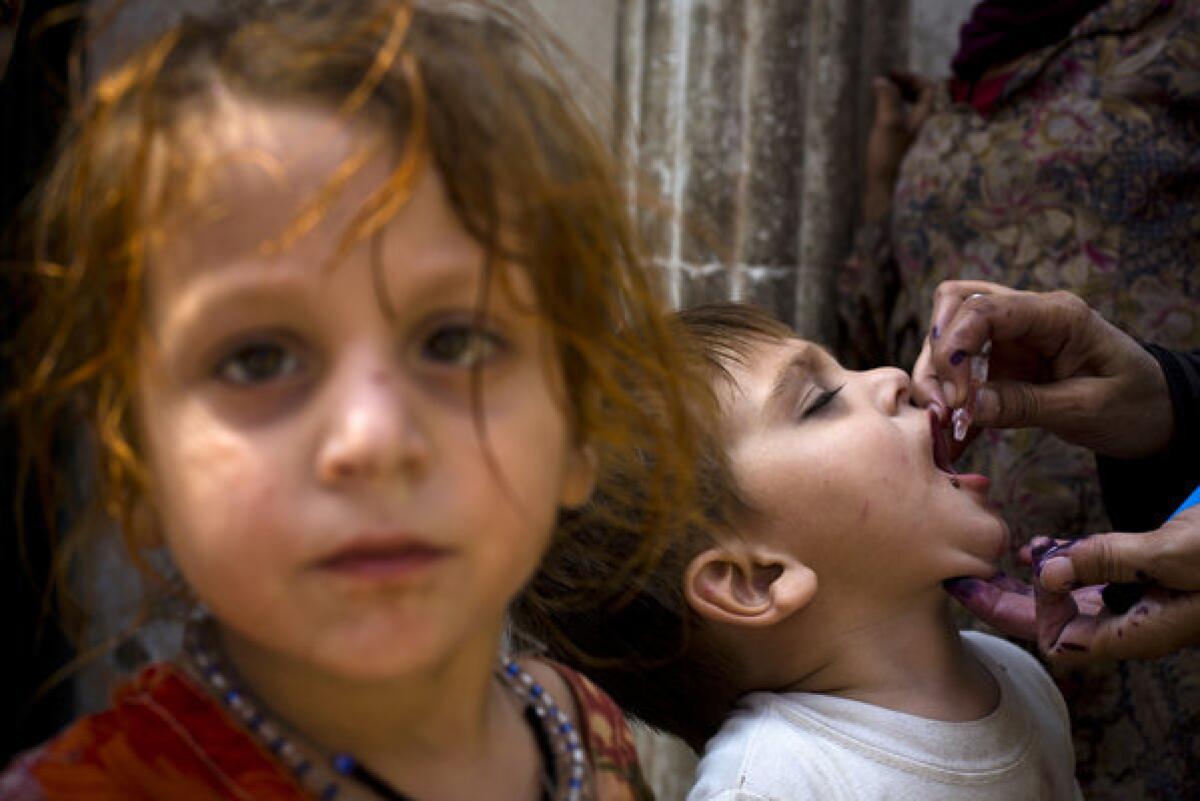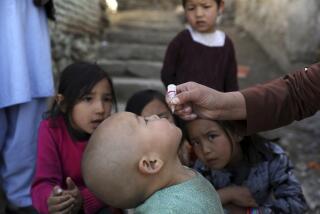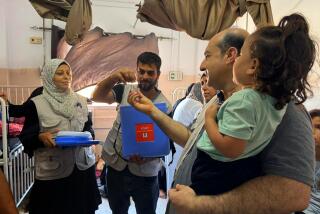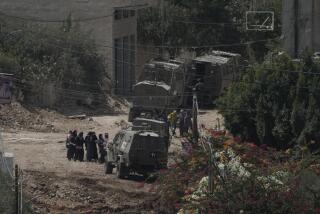Two dead in latest attack on Pakistani polio workers

PESHAWAR, Pakistan – A bomb exploded near a government health center Monday in northwestern Pakistan as anti-polio kits were being distributed, killing two people and wounding at least 12, Pakistani officials said.
The explosion in a suburb of Peshawar, the capital of restive Khyber Pakhtunkhwa province near the Afghan border, was apparently detonated by remote control. It was the latest in a series of attacks on polio workers in Pakistan.
A policeman and a volunteer peace committee member were killed in the blast, which appeared to target police assigned to protect vaccinators shortly before they headed into nearby neighborhoods to administer the anti-polio vaccine, authorities said. The wounded, including seven policemen and five civilians, were taken to Lady Reading Hospital, Peshawar’s largest.
“The police were the target,” said Najeeb-ur-Rehman Bagvi, a senior police officer.
Dr. Kalim Ullah Khan, assistant director of Khyber Pakhtunkhwa’s immunization program, said Monday was the final day of a three-day vaccination campaign involving some 10,000 children. That day’s immunizations were put on hold temporarily because of the killings.
“There’s a lot of fear everywhere,” Khan said.
Pakistan is one of only three countries worldwide, along with Afghanistan and Nigeria, where polio is still considered endemic. Eight new cases of the wild polio virus were reported here last week, one from Khyber Pakhtunkhwa and seven from the neighboring Federally Administered Tribal Areas, bringing the total number of cases this year to 36, according to the Global Polio Eradication Initiative, a public-private health program.
No one took immediate responsibility for the attack, although the Taliban is suspected. Efforts to stem the disease –- long eradicated in the Americas -- have been hampered by attacks on healthcare workers after the Taliban condemned vaccination as a Western plot to sterilize Muslims.
Distrust of the West stems in part from the CIA’s use of a fake hepatitis vaccination campaign in 2011 as part of an effort to locate and confirm the identity of Al Qaeda leader Osama bin Laden, who was then killed in a raid mounted by U.S. Navy SEALs.
More than 90% of new reported polio cases are from the country’s most restive areas, as many vaccinators lost enthusiasm in the face of rising danger and low pay. In March, the World Health Organization reported that approximately 240,000 children in tribal areas have missed their polio vaccinations because of security concerns.
Attacks like Monday’s dispirit vaccination workers. “These are hard-working people who put their lives at stake,” said Dr. Syed Asad Ali, a pediatrics and child health professor with Karachi’s Aga Khan University. “But the other side is, the effort hasn’t been derailed as much as people expected.”
In response to rising attacks against health workers, for instance, the central government has stopped well-publicized national immunization days in favor of targeted local campaigns carried out without much publicity, giving militants less time to mobilize. At least 11 polio vaccinators were killed in Pakistan in 2012, according to the United Nations.
“I’m sure the CIA [hepatitis] operation set things back,” Ali said. “But I also feel the real target isn’t so much polio as the international press the militants get when they attack polio workers. They’ve realized, if you want to be in the news, it’s a good way to do it.”
Monday’s bomb reportedly was planted near the main gate of the health center compound in the Peshawar suburb of Suleman Khel and detonated when police assembled to protect the vaccinators. Most health workers reportedly were spared since they were inside a building at the time.
Hameed Ullah, a Suleman Khel resident who witnessed the attack, said a second bomb was found and defused outside the medical center before it exploded. Local media said the second bomb contained approximately 17 pounds of explosive material, compared with 12 pounds for the first, and both were fitted with remote-controlled detonators.
Islamist-linked militant violence has increased in Pakistan recently, especially Peshawar, despite efforts by the government of Prime Minister Nawaz Sharif to initiate talks with the Taliban. The frontier city has seen at least four attacks in the past month that have killed more than 150 people.
Pakistan started its first immunization program in 1994 under Prime Minister Benazir Bhutto, the same year the Americas were declared polio-free, and initially made significant progress. By 2007, the number of new wild polio cases had fallen to 32 from 1,147 in 1997 before rising in recent years as security deteriorated.
ALSO:
Kerry offers rare, qualified praise of Syria’s Assad
Egypt attacks could signal more widespread violence
U.S. raids in Libya, Somalia reflect shift away from drone strikes
Mark.Magnier@latimes.com
Special correspondent Ali reported from Peshawar and staff writer Magnier reported from New Delhi.
More to Read
Sign up for Essential California
The most important California stories and recommendations in your inbox every morning.
You may occasionally receive promotional content from the Los Angeles Times.










